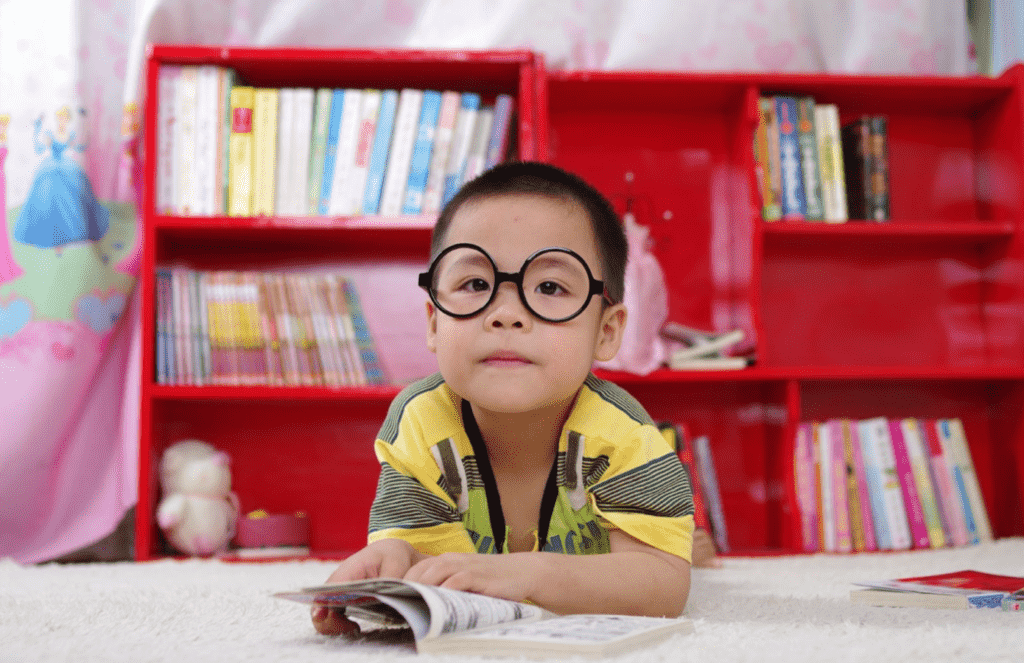Bullying is a common occurrence at school, and children who wear glasses are often the main targets of schoolyard bullies. It can be verbal, physical, or even both and involves a power imbalance.
A study in Investigative Ophthalmology and Visual Science found that preadolescent children who wear glasses are around one-third more likely to be bullied than other kids. Surprisingly, the numbers remained the same regardless of gender, social class, or the child’s visual impairment.
With more than 25.3 percent of children aged 2 to 17 wearing glasses, it’s becoming a more prevalent concern. Maltreatment can negatively impact a child, resulting in lower self-esteem, declining grades, mental health concerns, social withdrawal, and self-harming behaviors.
Who Gets Bullied?
Nearly half of all children experience bullying in school. Harassment at school takes two forms—physical harassment and verbal harassment. Regardless of the type, both are highly detrimental to learning, socializing, and a child’s self-esteem.
Statistics on childhood bullying show the following:
- Nearly 13 percent of bullied students report being called names, made fun of, or insulted.
- 12 percent report having rumors spread about them.
- Girls are bullied more than boys (23 versus 19 percent).
- Bullying can still occur online with 10 percent of children reporting being cyberbullied.
Wearing glasses at school may raise a child’s risk of being bullied, there is a recognized stigma around those who require them for vision needs, especially in a school setting and among young peers. The most common criticism revolving around labels such as being “nerdy” or a “geek” and possibly scruitnized as unattractive.
It’s important to discourage this kind of behavior in youth, but beyond mitigating bullying tendencies, it’s also advisable to support those who do wear glasses by giving them a variety of kids glasses styles to choose from, as making the accessory more personalized can help empower them as well.
Effects of Bullying
Bullying can put your child at risk of various health issues, including anxiety, depression, loneliness, poor self-esteem, social withdrawal, difficulties with interpersonal interactions, and self-harming behaviors.
Low Self-Esteem
Bullying makes a child feel isolated, unlovable, and unwelcome, which significantly impacts how they view themselves, thereby lowering their self-esteem. And this lowered self-esteem traps them in a never-ending web of bullying.
What’s more, when a child starts seeing themselves as less than others, it results in a lack of motivation, depression, poor productivity in school, dropping grades, and decreased interest in activities and the world around them. Being a victim of bullying also increases the risk of suicide.
In simple words, low self-esteem increases a child’s likelihood of being bullied, and bullying can further decrease self-esteem.
Anxiety
Being a victim of bullying can result in long-lasting psychological issues. Studies found that nearly a quarter of people who have been bullied experience mental health issues later in life, including anxiety disorder, depression, social anxiety, and PTSD (post-traumatic stress disorder).
Anxiety disorders can further contribute to physical health issues as well. It can cause a person to be constantly irritable, withdrawn, and triggered by past events. As a result, they might suffer from nightmares, sleep difficulties, focus and attention issues, angry outbursts, and eating issues.
Bad Grades
Children who look different, like the ones who wear glasses, are often the victims of bullying, which causes interpersonal and social issues, leading to a lack of motivation to participate in group activities. Signs your child might be being bullied involve loss of interest in schoolwork, declining grades, fear of being in school, withdrawal and seeming on edge, sad and fearful, sleep disturbances, changes in eating habits, etc.
Bully Prevention
Young children, preteens, and adolescents are at high risk of bullying. Childhood is an essential period of self-growth and development. Hence, being bullied at this phase can directly impact self-worth and mental health status.
Educating children through school programs can help prevent bullying. In fact, studies have shown that anti-bullying programs at schools can decrease bullying by over 25 percent. Child bullies should be made to understand the full impact of their actions.
They should be taught that bullying is harmful and can have lasting effects on their peers. Students also have to be made aware of the anti-bullying policies and resources at the school and how to stand up for someone being bullied. This means they must know how to report bullying if they come across it.
Fostering an atmosphere that celebrates differences can also help decrease bullying stemming from a lack of understanding and negative views of being different. Work towards ensuring teachers and school staff treats all students equally. When it comes to children with glasses, seeing such students represented in popular media, like TV shows and books, can help. It shows children that glasses are nothing but a normal part of life, and many of their peers wear them.
Say No to Stigma
Bullying is a crucial issue in childhood, especially for kids who wear glasses. This makes life hard for such kids as they suffer from various mental and physical health issues. However, with the right empowerment and education, children can be made to stand up against bullying, appreciate their differences, and encourage inclusion and acceptance regardless of a person’s appearance.
